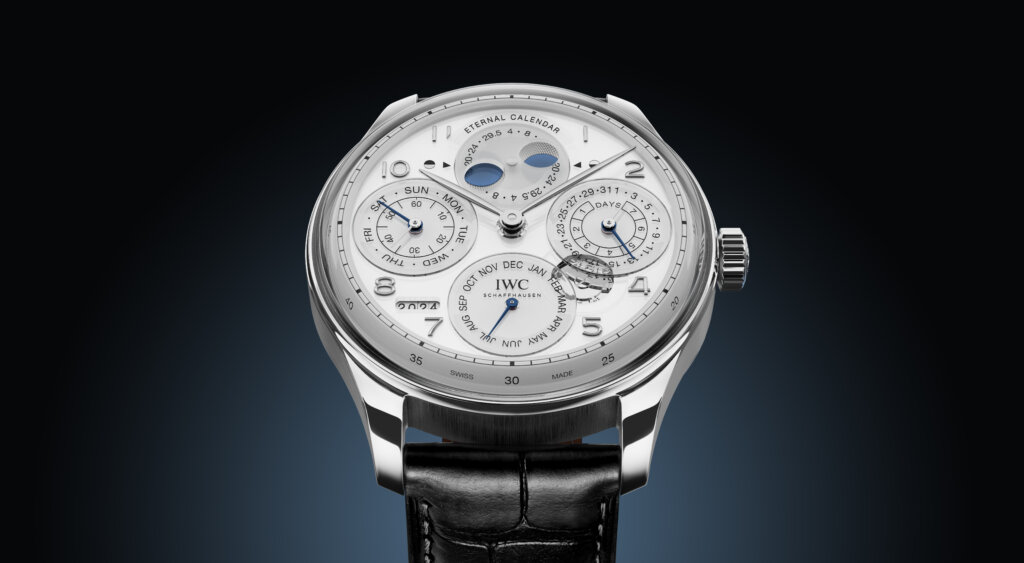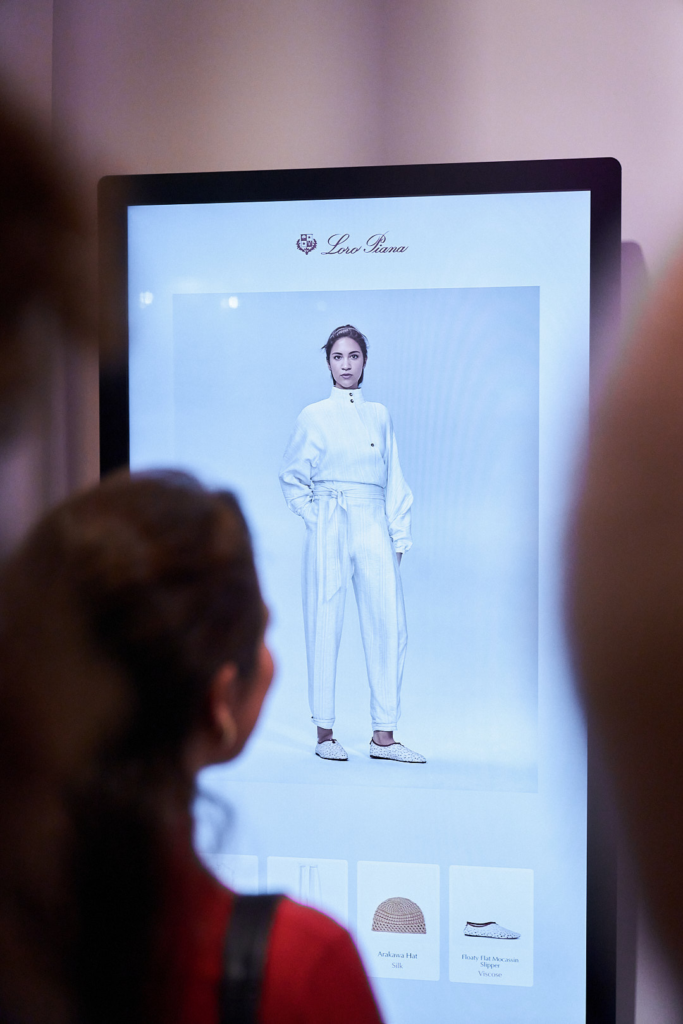AI has changed many industries, from healthcare to finance, by improving efficiency, accuracy, and personalization. Luxury fashion, known for its focus on exclusivity, high-quality craftsmanship, and unique experiences, has not gone unaffected by AI. As AI technologies improve, they become more integrated into various aspects of luxury fashion, from designs to customer service.
Table of Contents
AI in Design and Creativity
AI has become a powerful tool for designers. AI-driven design tools and software allow designers to explore new aesthetics and experiment with forms, patterns, and materials in previously unimaginable ways. For example, AI algorithms can analyze vast amounts of data, including historical fashion trends and consumer preferences, to generate new design concepts. This speeds up the designing process by a lot.

A significant example is the use of AI by the luxury watch brand IWC Schaffhausen. The brand’s Portugieser Perpetual Calendar features a moon phase display that makes errors by only one day in 577.5 years, a precision made possible through more than 22 trillion AI-assisted calculations.
Personalization and Customer Experience
One of the most significant impacts of AI in luxury fashion is its ability to enhance personalization. Luxury consumers expect special experiences, and AI enables brands to meet these expectations more easily. AI-driven personalization tools analyze customer data to offer tailored recommendations, creating a virtual stylist experience. This can range from suggesting outfits based on previous purchases to providing style advice through AI-powered chatbots.
Brands like Burberry and Gucci have embraced AI to deliver personalized customer experiences. Gucci uses AI to “generate bitesize conversation replies in a “Guccified” brand voice to help advisors assist customers” – Salesforce
This helps customer support give better, faster responses and more time to focus on more important problems. All this improves customer satisfaction.

Supply Chain and Inventory Management
AI plays a crucial role in optimizing supply chain and inventory management, which are vital components in almost any fashion brand. Predictive analytics powered by AI can predict demand more accurately, ensuring that the right products are available at the right time. This reduces overstock and understock situations minimizing waste. You can read more about this here.
Source: 4.1. Application of Artificial Intelligence in Luxury Supply Chain
Marketing and Consumer Insights
Marketing strategies in the luxury fashion sector have also been transformed by AI. Using analytics, luxury brands can gain deeper insights into customer behavior, preferences, and purchasing patterns. This information allows for more targeted advertising campaigns, making sure that marketing efforts reach the right audience.
Dior recently presented something called Astra. An AI platform that groups customer comments from multiple channels – Google reviews, product pages, interactions with customer service, satisfaction surveys, live shopping sessions, and more. Astra then uses this data to identify new trends or issues and keep track of what customers are thinking and saying about Dior.
An example that is of use now is from Tag Heuer, a luxury watch brand, that used IBM Watson’s AI to analyze consumer preferences. In the case study, they claimed that they “Delivered more personalized services, helping drive 3x growth”
Source: LVMH
Enhancing In-Store and Online Experiences
AI is enhancing both in-store and online shopping experiences, making them more immersive and engaging. In physical stores, AI technologies such as smart mirrors and virtual try-ons allow customers to visualize how garments will look without having to try them on physically. These tools provide a more interactive and convenient shopping experience.
A good example of this is The Loro Piana Silhouette. This interesting up-and-coming AI creates a digital you where you can try on Loro Piana clothes that match your style and body type without actually putting them on.

Another good up-and-coming example is from Louis Vuitton. It is called the Extraordinaires AI-Configurator and is made to enhance in-store experiences. This AI tool uses customer photos or prompts to suggest products tailored to individual styles and needs.
Source: LVMH
Ethical Considerations and Challenges
Despite the numerous benefits, the integration of AI in luxury fashion also raises ethical considerations. Data privacy and security are really hard to keep when brands collect and analyze significant amounts of customer data. Ensuring that this data is handled responsibly and transparently is crucial to maintaining consumer trust.
Moreover, there is the challenge of preserving the authenticity and craftsmanship that define luxury fashion. While AI can enhance efficiency and creativity, it is essential that it complements rather than replaces the human touch that is important to luxury fashion. Brands must find a balance between using AI’s capabilities and maintaining their traditional values.
But there is also a benefit to AI. As mentioned earlier AI can be used to predict demand more accurately. This also means there is less stuff that goes to waste.
Conclusion
AI has significantly transformed the luxury fashion industry by enhancing design, personalization, supply chain management, marketing, and shopping experiences. Brands like IWC Schaffhausen and Gucci show how AI can drive innovation and efficiency while maintaining high standards of craftsmanship. However, ethical considerations such as data privacy and preserving authenticity remain crucial.




